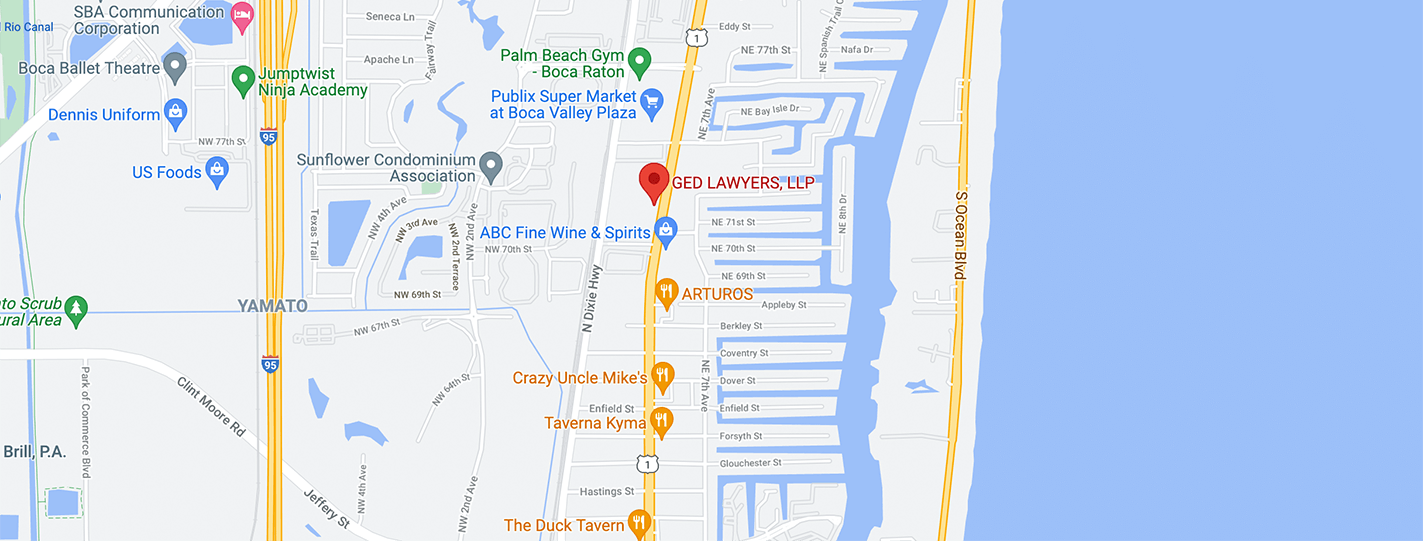
In Florida, you must report a car accident within 10 days if it resulted in injury, death, or property damage of $500 or more. Reporting an accident is not just a legal requirement—it can also protect your rights and help preserve important evidence.
Whether you were involved in a major collision or a minor fender bender, knowing when and how to report the crash is essential to avoid penalties and ensure your insurance claim is processed correctly. For more information, contact a Florida car accident lawyer.
When are You Required to Report a Car Accident in Florida?
Florida law requires drivers to report certain types of car accidents to law enforcement. You must report a crash immediately to local police if the accident results in injury, death, or significant property damage. In most cases, this involves calling 911 at the scene so law enforcement can file an official report.
If police respond to the scene, they will handle the report. However, if law enforcement was not called and the accident still meets the legal threshold—such as causing over $500 in property damage—you are responsible for filing a written report yourself within ten days of the crash.
Failing to do so can lead to penalties, including fines or administrative action against your driver’s license.
we are here for our clients and their legal needs, with proficiency in a broad range of fields. GET A FREE CONSULTATION
How to Report a Car Accident in Florida
There are two ways to report a car accident in Florida, depending on the severity and whether police were involved. For accidents involving injury, death, or significant damage, a police officer will typically respond and create an official crash report on your behalf. This satisfies your legal obligation to report the incident.
For less serious accidents—such as a fender bender with minor or no visible damage—you may be required to file a crash report yourself. You can do this online through the Florida Highway Safety and Motor Vehicles (FLHSMV) website.
Even if an accident seems minor, documenting it can be crucial. Injuries or damage may become apparent days later, and a filed report can help protect your rights if legal or insurance issues arise.
Why Prompt Reporting Matters: Legal and Practical Reasons
Timely reporting of a car accident serves both legal and practical purposes. From a legal perspective, failing to report a required accident could result in fines, license suspension, or other penalties. Moreover, reporting the accident creates a formal record of what happened, which can be critical if disputes arise later.
From an insurance standpoint, companies often require immediate notification of a crash. A police or self-reported accident report helps streamline the claims process and establishes key facts like time, location, and who was involved.
The sooner you report, the more credible your claim appears, and the easier it will be to obtain compensation for vehicle damage, medical bills, or lost wages.
with compassionate advice and professional assistance. CALL US TODAY
What to Do After a Car Accident in Florida
After a car accident, it’s easy to feel overwhelmed, but following the correct steps can help ensure you stay safe, protect your rights, and meet legal obligations. Here’s a quick reference guide:
- Remain at the scene: Leaving could lead to hit-and-run charges, even if the crash seems minor.
- Call 911: If anyone is injured or there’s significant damage, contact emergency services.
- Check for injuries: Administer basic aid if you’re able, but wait for professionals for serious injuries.
- Exchange information: Swap names, contact info, insurance, and vehicle details with the other driver(s).
- Document the accident: Take photos or videos of all involved vehicles, visible injuries, road conditions, and any skid marks or debris.
- Notify your insurance provider: Call your insurer as soon as possible to begin the claims process.
- Report the crash if necessary: Submit your report to the FLHSMV if the police do not file one.
- Seek medical attention: Some injuries, like whiplash or concussions, may not be obvious right away.
- Consult a personal injury attorney: An experienced lawyer can help you understand your rights and recover fair compensation.
We look forward to hearing from you and helping you with your legal needs. CALL FOR A FREE EVALUATION
Consequences of Failing to Report a Car Accident
Failing to report a car accident when required can lead to both legal and financial trouble. At a minimum, you may receive a citation or fine from law enforcement.
More seriously, failure to report could lead to a suspension of your driver’s license or difficulties with your insurance provider, especially if a claim arises later and there’s no documentation on file. In some cases, not reporting an accident could expose you to civil liability.
If another party later claims injury or damage and you have no report to support your version of events, it may be much harder to defend yourself or prove what actually occurred. In DUI-related or serious injury cases, failure to report could even lead to criminal charges.
Get Legal Help if You’ve Been in a Florida Car Accident
So, how long do you have to report a car accident in FL? In Florida, drivers are legally required to report qualifying car accidents within 10 days—and sometimes immediately—depending on the severity of the crash.
If you’ve been involved in an accident and aren’t sure what to do next, get a free legal consultation with us at GED Lawyers.
Our experienced team can help you understand your obligations, evaluate your case, and pursue the compensation you deserve. Visit our FAQ page to learn more about Florida car accident laws and how to protect your rights after a crash.
